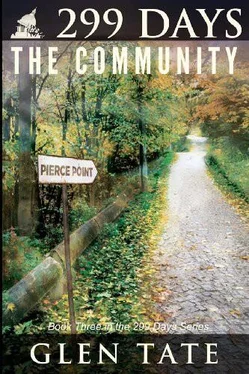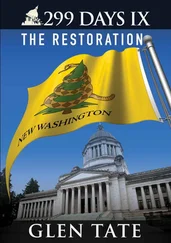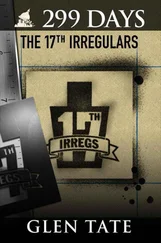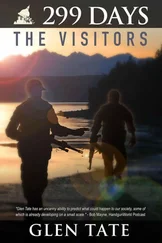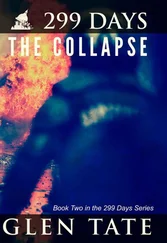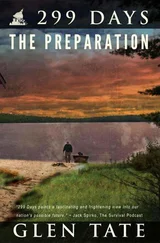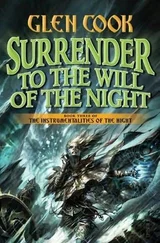“Yeah, I guess,” she said. “But I won’t turn anyone away who really needs it.” She paused and smiled, “I won’t give some middle aged guy a testicular exam without getting a case of tuna.” She winked and whispered, “Unless you have a case of tuna, big boy.”
Grant blushed. He had not seen that coming, and he planned to take her up on that offer later.
Thank God she was OK with this doctor thing. He went into overdrive to make this work. “I’ll talk to Rich in the morning. We’ll figure out a clinic facility. We’ll get an inventory of medical supplies. I have some rubbing alcohol here, for example.”
She looked at him. “You have rubbing alcohol? What else did my psycho survivalist husband pack up out here?” She was so happy he had taken these precautions. She was just having some fun with him.
“You’ll see, my dear,” Grant said. He started to describe all the things in the storage shed. He emphasized the fact that he bought all these things with the money it took to buy an ounce of gold back when it was just $900. “A two-quart pack of rubbing alcohol was $4.99 at Costco up until recently,” he said with a smile. That’s as close to gloating as he would come.
“Well, you’re still psycho but I’m glad I have some rubbing alcohol,” she said and then winked. “That way I can thoroughly sterilize my hands after giving testicular exams to all your friends.”
Grant looked around at where the kids were.
She read his mind. It wasn’t hard. She looked at him and whispered. “Yes, when the kids go to bed. My parents are upstairs, but I’ll try to forget that.”
This set up out at the cabin wasn’t ideal, but the basics were getting taken care of. Like sex. Oh, and food, water, shelter, and security. And sex.
Chapter 91
Show Time
(May 9)
How would they get more food? Grant woke up at 2:30 a.m. wondering that. They, the Matsons, had months of food for themselves, but that wasn’t enough. The Colsons and Morrells had a month or so of food. The Team had practically nothing. Drew had plenty of cash, but would the stores have food to buy? Would the inflated prices mean the cash would be gone quickly?
Grant laughed at himself. Before the Collapse, he would wake up in the middle of the night on occasion worrying about a work problem. Back then, he thought that if work would just go away after society imploded, he’d be set. All his work problems would go away and everything would be fine.
He realized that wasn’t true. Now he didn’t have to worry about something at work, but he had to worry about getting food for his family. Not necessarily a good trade.
Well, look at your assets, he thought. You can offer security. That’s worth something. It’s worth more now than having a lawyer argue about the meaning of words. Lisa can offer lifesaving. That’s sure worth something.
“I have a new job,” Grant whispered to himself. That was it. He had a new job. He would hopefully get paid in meals and maybe some gasoline. His wife would similarly get paid. They had emergency “savings” in the form of the food in the storage shed. Not bad.
So how would everyone else on Over Road get food? Tammy had a normal job. People needed electricity. That would be a huge priority of the government. Imagine the political problem if a government supposedly in charge couldn’t keep the lights on and the water running.
The hunting and fishing was nice, but no one really expected that to sustain the seventeen people on Over Road. Everyone in the area would have the same idea. Game would get scarce fast. That happened during the first Great Depression. Old timers told stories of squirrels getting rare. The same with fish. The days of seeing closed oyster shells with live oysters in them on the beach would soon be over. The hunting and fishing was great for a meat “anchor” one meal, like the deer steak BBQs at the Colsons. Gas was in short supply, and travel was dangerous, so people in Pierce Point couldn’t just drive a few miles to a place with no people and hunt and fish there.
The chicks and chickens were great, but they would only produce a meal or two per person each week, if that. A definite plus, but not a complete solution.
Gardening and permaculture, which was food that returns every year like apple trees, was great. It was only a supplement, though. It would take a few months for the crops planted now, in May, to mature in the late summer or fall. And, more importantly, there weren’t too many clear patches for crops. They were in a forested area that dropped into the sea. The few clear patches had houses on them or were overrun with weeds. Grant started thinking about some clear patches a few roads away. They should start a community garden on those patches. Pay the owner of those lots some rent in the form of produce. He would bring that up at the next meeting.
The stores in town. Grant kept thinking that the stores, with their virtually bare shelves, would still have to be the main food supply for most people. America wasn’t the rural, self-sufficient country it was even a few generations ago. Grant remembered hearing on the Survival Podcast that America was now a net importer of food. The country imported more food than it exported. That was unbelievable. When Grant was a kid, America fed itself and most of the rest of the world. But politicians decided it was better to give American farmers subsidies not to farm than it was to actually grow food. In the insanity of the pre-Collapse political world, that actually made sense to those in power. And the farmers, most of them working for giant agricultural corporations, didn’t mind cashing the checks. Everyone was a winner—except if the unthinkable happened and America actually had to feed itself. How is feeding oneself “unthinkable”? Besides, according to the pre-Collapse thinking, the U.S. could count on the Mexicans to send all the produce the country needed and save a dollar on each tomato. What could ever go wrong in Mexico that would cause a disruption in the United States’ cheap food supply?
Hopefully the government, as inept as it was, would figure out a way to harness the enormous potential food production America still had and get it out to the people. What an impossible task, even for competent and honest government. It would be even harder for this government. But the political pressure to feed people would be enormous. The government knew that if people were hungry and had nothing to lose, they would rise up and kill all those government people who were keeping them hungry. Feeding the people was a military necessity. Grant remembered reading Mao’s book on guerilla warfare describing food production as a military necessity.
Even if the government could pull it off, people would have much less to eat. They would have different food. No more tomatoes from Mexico for salads that people ate a bite of and then threw out. Now, a tomato a week might come from a neighbor’s garden. It would taste far better and not have who knows what sprayed on it, but it wouldn’t be as plentiful. All the junk food that sustained so many people would be gone. It cost too much to produce and required ingredients from all over the country, which couldn’t just roll down the road on semis now that gas was $15 a gallon today, and maybe $20 tomorrow?
Grant tried to go back to sleep. He started thinking about all the food his family had. All the various meal combinations they had. All the nutrition. All the vitamins he stored out there. He had done a hell of a job getting ready for this. A hell of a job.
He woke up when the sunlight came into the bedroom. He got dressed, which now included his pistol belt, and tried to get up quietly and start cooking pancakes. It was 6:30 a.m. He had some time before people started coming over.
Читать дальше
